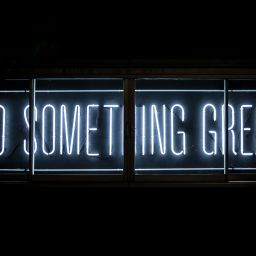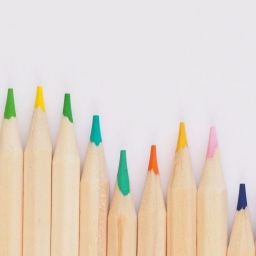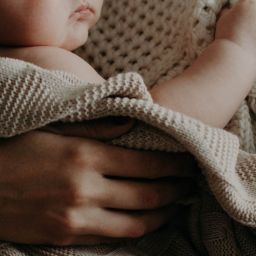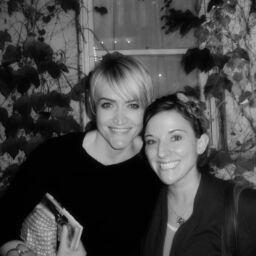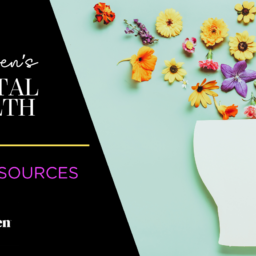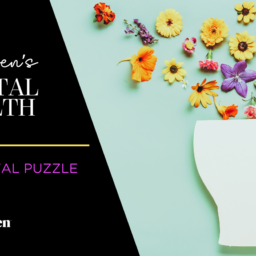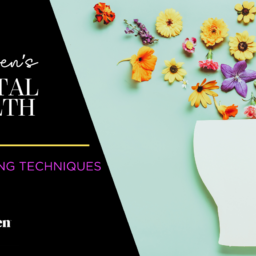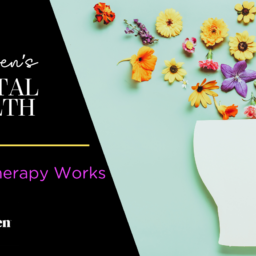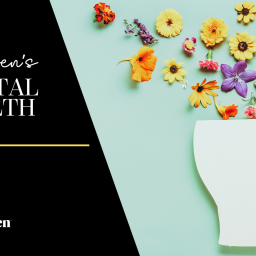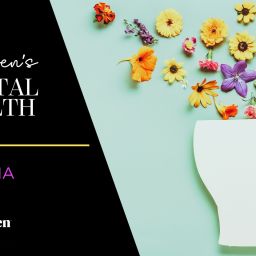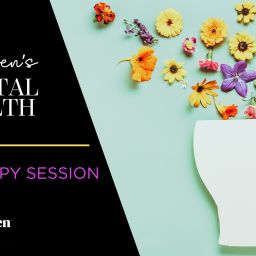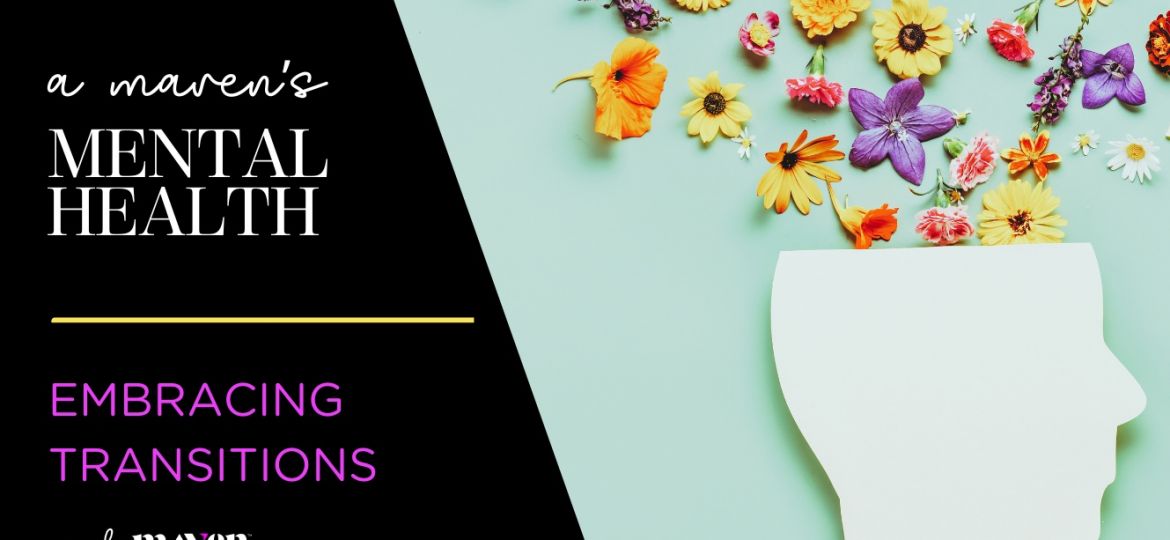
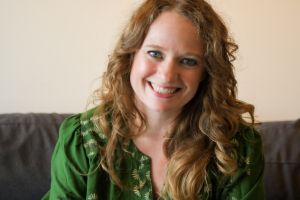 Welcome to Indy Maven’s Mental Health column coming by way of Adair McDonald, LMHC (she/her/hers). Check out her website for information about how Adair works with clients, and to contact her directly to book a session.
Welcome to Indy Maven’s Mental Health column coming by way of Adair McDonald, LMHC (she/her/hers). Check out her website for information about how Adair works with clients, and to contact her directly to book a session.
The other day, I was in a great yoga class with a teacher who plays music that never fails to hit me in my sacral chakra.* “Wake Me Up When September Ends” by Green Day played, and within my silent reflections, I thought, “GIRL. Yes.” I remembered the term I’d heard recently, “September Scaries,” a seasonal mix of melancholy and anxiety, and realized that’s what I needed to write about this month.
 I often struggle with the transitions between seasons. Just when I’ve gotten comfortable in whatever temperature range and vibe I’ve been hanging in, BAM—it’s time to change. The very worst transition for me is summer into fall. You may be one of those souls who can’t wait to get their pumpkin spice latte and stroll down the Halloween aisle at Target, but that ain’t me. I always want to hold on as long as I can to the carefree summer vibes that make bending the rules of adulthood feel easy and acceptable.
I often struggle with the transitions between seasons. Just when I’ve gotten comfortable in whatever temperature range and vibe I’ve been hanging in, BAM—it’s time to change. The very worst transition for me is summer into fall. You may be one of those souls who can’t wait to get their pumpkin spice latte and stroll down the Halloween aisle at Target, but that ain’t me. I always want to hold on as long as I can to the carefree summer vibes that make bending the rules of adulthood feel easy and acceptable.
Listen, I don’t hate fall. I love it when I’m in it. Hot cider, the first fire in the fireplace, classic horror movies, radiant foliage: what’s not to love? But when the leaves start to turn while we’re still wearing short sleeves, I feel triggered with reminders of my school days as a child and teen. This was always the time of year when the honeymoon phase was coming to a close, and I was, yet again, struggling to get my work done to make the grades that would keep me out of trouble.
No one could understand why I didn’t do well in school. I was a voracious reader, interested in so much. I could memorize easily. I was solid at math when I actually bothered to learn it, good at spelling, and had a great vocabulary. I did well on standardized tests. But I was constantly forgetting when things were due, missing deadlines, and I simply couldn’t (or wouldn’t?) make myself do boring things when there were so many books to read, poems to write, friends to chat with, and daydreams to be had.
Back then, people didn’t really talk much about ADHD, and they understood it less. How could a child who read everything she could get her hands on have attention problems? She must just be stubborn, rebellious, or lazy.
 I stumbled through my grade school, junior high, and high school years with report cards featuring the occasional A, the occasional F, and a whole bunch in the middle. Thanks to being a theater kid and the related audition process, I was able to get into college despite my dismal GPA. I still didn’t have a great organization system nor had I yet figured out how to use a planner, so mistakes were made. Still, I managed to get all A’s and B’s my first semester while working part-time, rehearsing and performing plays, and having way too much fun with my friends. I’ll never forget when my little brother brought that report card to show me in person, having found it in the mailbox of our family home. He was so proud of me, and probably as relieved as I was. Finally, my semester had been filled with classes based on my true interests, so paying attention was a breeze.
I stumbled through my grade school, junior high, and high school years with report cards featuring the occasional A, the occasional F, and a whole bunch in the middle. Thanks to being a theater kid and the related audition process, I was able to get into college despite my dismal GPA. I still didn’t have a great organization system nor had I yet figured out how to use a planner, so mistakes were made. Still, I managed to get all A’s and B’s my first semester while working part-time, rehearsing and performing plays, and having way too much fun with my friends. I’ll never forget when my little brother brought that report card to show me in person, having found it in the mailbox of our family home. He was so proud of me, and probably as relieved as I was. Finally, my semester had been filled with classes based on my true interests, so paying attention was a breeze.
Many years passed until I faced some of these challenges again. Grad school wasn’t too hard since all the subjects interested me, but then I hit my research and statistics class. I started to consider that I might have something going on with my brain that wasn’t entirely in my control. For the first time in a long time, I felt like a younger Adair who simply couldn’t sit down and make herself do work that was tedious and boring.** But this time, I was studying mental health, and with the help of my then-current PCP—an old friend of mine from high school—I finally had an explanation. He told me later that when the nurse mentioned my concentration complaints, he said, “Oh yeah, Adair has ADHD.” Ha! Someone really should have told me.
He gave me my diagnosis and prescribed helpful medication, but the biggest benefit of finally realizing I have this condition is the weight it has lifted. I now realize it’s okay that I’m not great at some things, pretty great at others, and that there are a lot of solutions available for the executive functioning challenges that trouble me most. Choosing to live with less clutter, hiring a house cleaner, setting timers, and listening to music or podcasts while I do my boring work have all been helpful. While younger Adair (as well as her parents and teachers) could have benefitted from similar insights, I’m grateful for the lessons from my own experiences, so now I can help others in this career that I love so much.
 If you are an adult woman with ADHD or have other issues that affect your executive functioning, you are my people. Now I am able to be tender and accepting toward my kooky brain, and I love helping women learn how to flow with theirs. We now have so many resources out there to help us, and it’s really fun to turn that magical hyperfocus toward the project of helping yourself.
If you are an adult woman with ADHD or have other issues that affect your executive functioning, you are my people. Now I am able to be tender and accepting toward my kooky brain, and I love helping women learn how to flow with theirs. We now have so many resources out there to help us, and it’s really fun to turn that magical hyperfocus toward the project of helping yourself.
I’m writing this on September 28 and will turn it in a few days past the deadline. In the past, this would have caused me an avalanche of shame, but today, I feel accountable and proud that at least I’m getting it done, and I’m grateful that writing this has forced me to slow down and reflect. September is coming to a close; we are officially in autumn. I made it through another transition, and today, I feel hopeful about what this season will bring. I can speak to the younger Adair inside of me and thank her for hanging in there and focusing on what she loved. While it is true that she didn’t make good grades and often struggled with how to handle big feelings, she filled her head with books. Those books live in me now and have informed the work I do to help clients write new narratives about themselves and the world around them. Younger Adair never would have imagined us on this full and rich life path, where we get to be with people and their stories every day. It makes me happy to think of her now, happily curled up in bed, devouring book after book with no reason to feel guilty at all.
* I had to Google which chakra is connected with feeling seen and understood.
** It’s not the research itself that is boring to me, it’s all the rules and math parts!
SUPPORT LOCAL JOURNALISM
All of our content—including this article—is entirely free. However, we’d love it if you would please consider supporting our journalism with an Indy Maven Membership.







